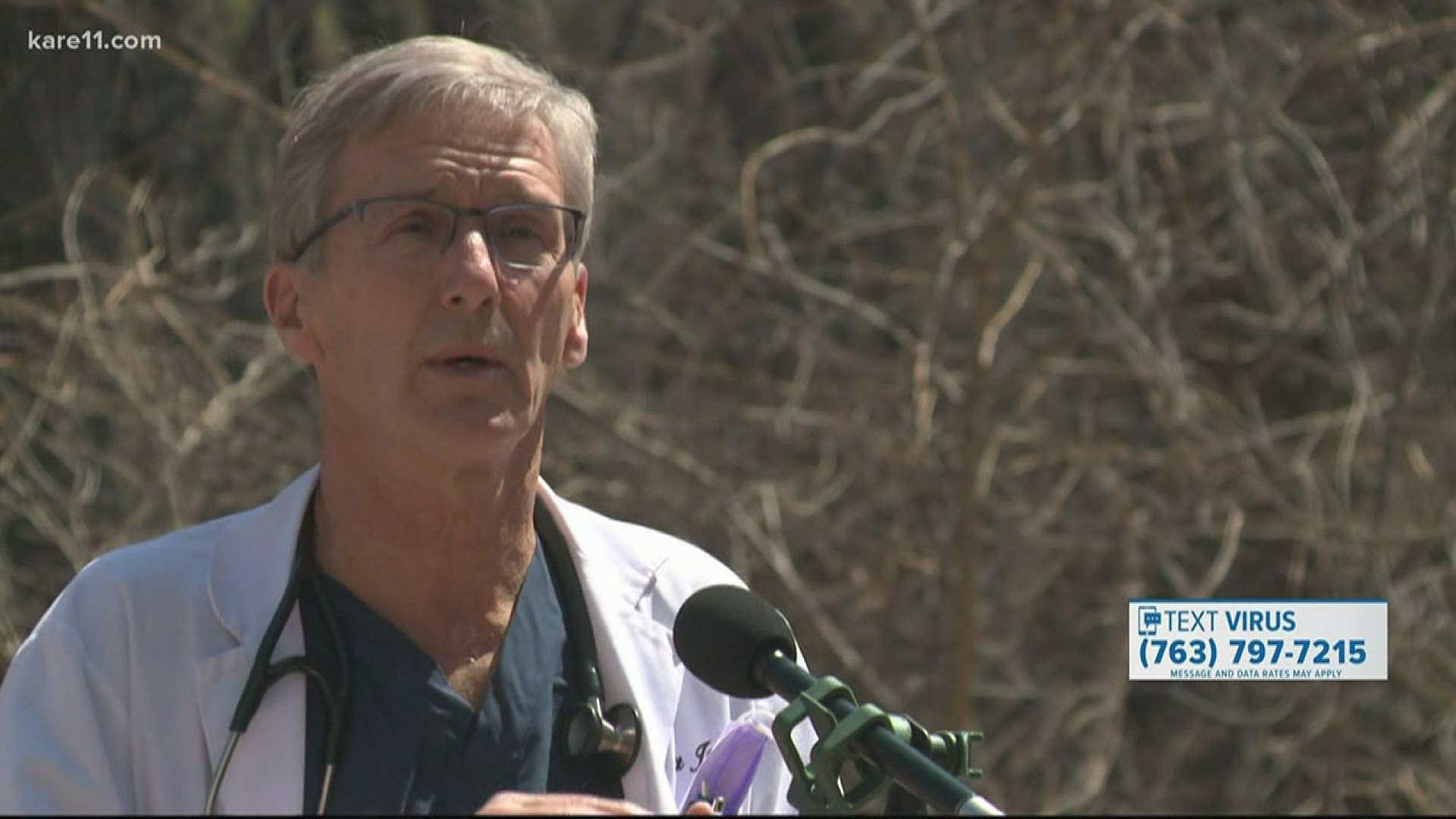ST PAUL, Minnesota — Minnesotans are clearly divided over whether Gov. Walz should extend his stay-at-home order past May 4 and whether it should apply to everyone.
Even the two doctors in the Minnesota Senate -- Scott Jensen and Matt Klein -- are on different pages when it comes to the next phase of the coronavirus battle.
Sen. Jensen, a family physician who practices in Watertown and Chaska, asserts the people who are most vulnerable to lung infections should remain sequestered past May 4. But he proposes others should be allowed to return to work and a more normal life while observing strict virus precautions.
Jensen argues the first two stay-at-home orders and public compliance with social distancing achieved the state's goal of flattening the infection curve, which gave hospitals and the public health system more time to prepare for a surge of COVID-19 patients.
"If the argument were going to be made that we should push the peak to July, I would say why? We already have the capacity, we're nowhere near our capacity for ICU beds," Sen. Jensen, a first-term Republican, told KARE.
"I think it makes just as much sense to go with a stay-at-home order for the vulnerable group and let the rest of Minnesotans get back to work and reignite this economy."
Sen. Klein, who practices internal medicine at Hennepin Healthcare's flagship hospital, HCMC, argues if healthier people are allowed to circulate too quickly, they're more likely to come into contact with the vulnerable population and infect them.
"Isolating only seniors, isolating only people with medical conditions, is not good public health policy," Klein, a first-term Democrat from Mendota Heights, explained.
"It's not the right way to go. If everybody else is out and about, those people will inevitably transmit a higher burden of disease to a population as a whole."
Klein says he understands those who are frustrated about being sidelined, and want to get back to work, church and school sooner rather than later.
"I would ask they have walked up to a bed in an ICU room with a 35-year-old patient who is having trouble breathing, their blood pressure is dropping. And try picturing that times ten, or that times 100. That’s what we’re trying to avoid."
Jensen cites the modeling scenarios done by the University of Minnesota and the Minnesota Dept. of Health, comparing the predicted a range of impacts of different sheltering strategies.
One known as Scenario 3 would extend the stay-at-home order for older Minnesotans and those with preexisting health problems. It predicts an ICU demand would peak at 3,700 beds at around June 8.
Scenario 4 envisions an across-the-board stay-at-home order with the demand for ICU beds peaking at 3,700 near July 13. Both scenarios predict 22,000 Minnesotans could die over the first 18 months of the pandemic.
"In both of those scenarios the number of deaths and the number of ICU beds stay the same," Jensen told KARE. "The difference would be whether or not the peak take place in June or July."
Gov. Walz and Health Commissioner Jan Malcolm have repeatedly stressed that the models are just one of the tools they're using to evaluate the public health outcomes of different executive orders. And they say the models are dynamic, changing as new data becomes available.
Klein says until testing and contact-tracing efforts ramp up to a larger scale epidemiologists are operating in the dark.
"We don’t know really know how it effects the body. We don’t really know how long you’re immune once you’ve had it, and we don’t know how it will play out in months ahead."
Jensen and Klein are both first-term lawmakers. They've professed respect for each other and have worked together on health-related legislation.
But the two docs remain in different camps when it comes to the right prescription for containing the spread of coronavirus.
KARE 11’s coverage of the coronavirus is rooted in Facts, not Fear. Visit kare11.com/coronavirus for comprehensive coverage, find out what you need to know about the Midwest specifically, learn more about the symptoms, and see what companies in Minnesota are hiring. Have a question? Text it to us at 763-797-7215. And get the latest coronavirus updates sent right to your inbox every morning. Subscribe to the KARE 11 Sunrise newsletter here. Help local families in need: www.kare11.com/give11.
The state of Minnesota has set up a hotline for general questions about coronavirus at 651-201-3920 or 1-800-657-3903, available 7 a.m. to 7 p.m.

